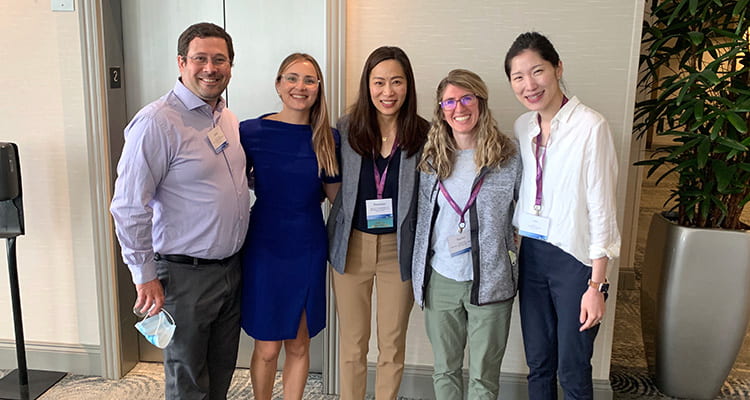The Division of Pediatric Rheumatology and Immunology provides a nationally recognized, ACGME accredited fellowship program in pediatric rheumatology. The program can accommodate one to two fellows each year and is tailored to the individual fellow’s interest and previous experience. The objective of the program is to prepare fellows for careers as academic pediatric rheumatologists by providing rigorous clinical training as well as a firm foundation in basic or clinical research and/or education methods.
The first year of the fellowship provides a focused, intensive exposure to broad areas of clinical rheumatology. Fellows will be paired with a faculty mentor in the division through our mentorship program to help fellows navigate through their transition to fellowship and to provide support and career advice throughout fellowship training.
- Inpatient: Depending on their long-term objectives, fellows spend between six and eight months during the first year on the inpatient consult service where they gradually take on more responsibility for the care of hospitalized patients with rheumatologic diseases and immunodeficiencies.
- Outpatient: Fellows participate in 2-3 half-day outpatient clinics per week where under the supervision of an attending physician, they will each see approximately ten outpatients with a wide variety of rheumatologic disorders.
- Procedures: During inpatient months, fellows will also have the opportunity to care for and manage approximately four to six patients per week in the infusion center, and perform 20-30 intraarticular joint injections in the outpatient procedure center during the year.
- Electives: Fellows have the opportunity to participate in elective rotations tailored to fit their interests and long-term goals (e.g., musculoskeletal radiology, pediatric orthopedics & sports medicine, dermatology, adult rheumatology and others).
- Research: During the first year, each fellow is provided time to investigate research opportunities within the Washington University Medical Center and guidance in identifying a research mentor. The fellows are allowed great latitude in selecting a research mentor from throughout the Washington University faculty.
The second and third-year of the fellowship provide the opportunity to primarily focus on individual career development and they have opportunities to pursue a specific training track that fits with their career development after discussion with the program director and mentors.
- Scholarly exploration: This time allows the fellows to complete their scholarly project and become firmly grounded in the skills necessary to complete a project focused on basic or clinical research, education, quality improvement, bioethics, and other related substantive scholarly exploration and analyses that require critical thinking. Fellows work closely with their identified mentors to develop an independent research project, design a plan to complete the project, troubleshoot problems, analyze data and prepare results for publication and/or presentation. The goal is for the trainees to have a written work product, such as a publication in a peer-reviewed journal, a curriculum development with an assessment component or other written communication of their body of work.
- Outpatient: The fellows continue to hone their clinical and patient management skills by participating in a weekly one half-day continuity rheumatology clinic where they gradually take on more and more independence under the supervision of an attending physician. Depending on their career track, they may also participate in other outpatient experiences or an additional outpatient clinic. In their continuity clinics, fellows will have the opportunity to take ownership in patient care, establish longitudinal relationship with patients and their families and learn to navigate healthcare system resources with support and guidance of faculty.
- Inpatient: Second and third-year fellows spend up to 2-8 weeks/year on the inpatient consult service depending on their training tracks. Depending on the fellow’s long-term objectives, they may also spend several additional months on the inpatient consult service. All senior fellows continue to share some inpatient weekend coverage.





